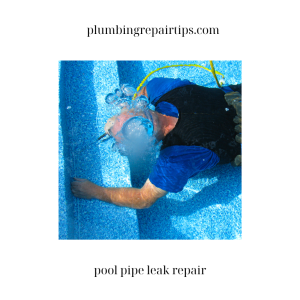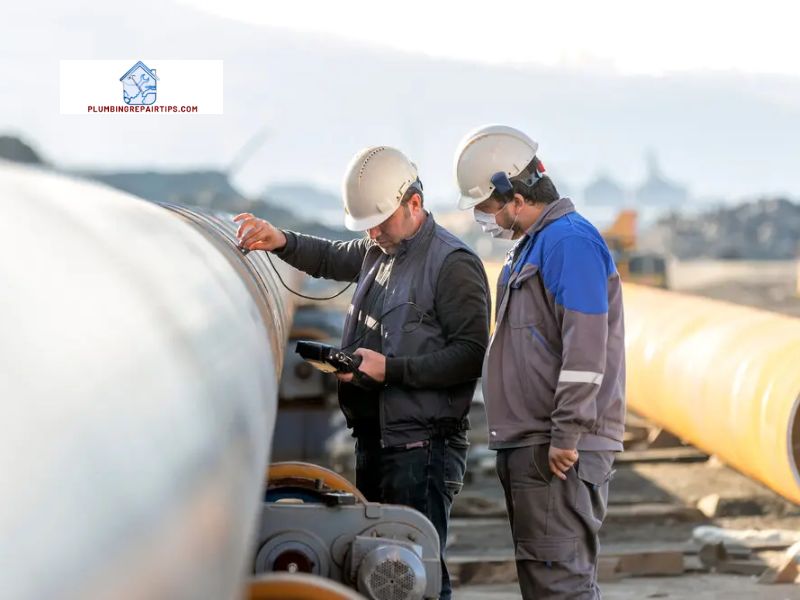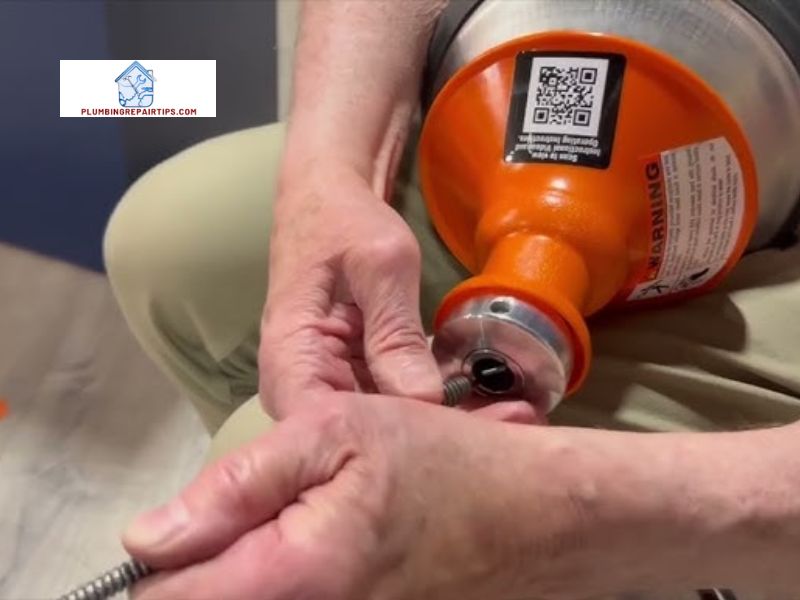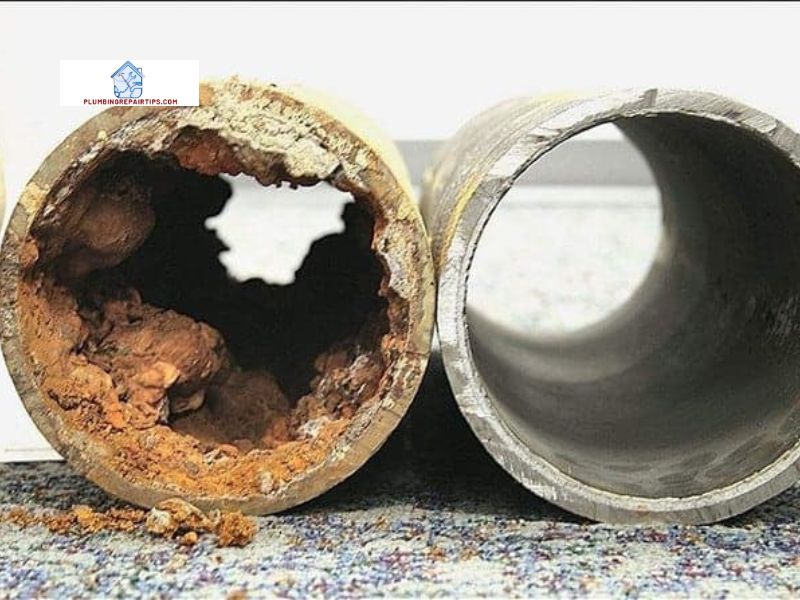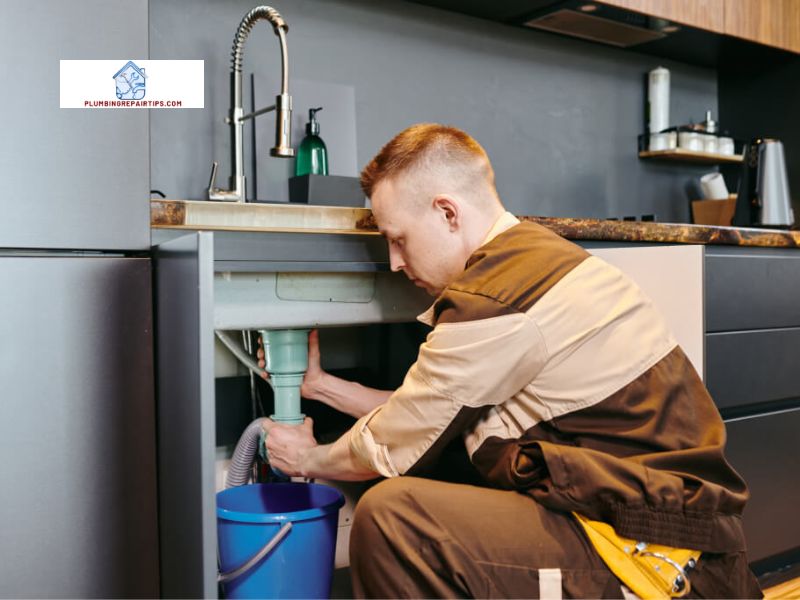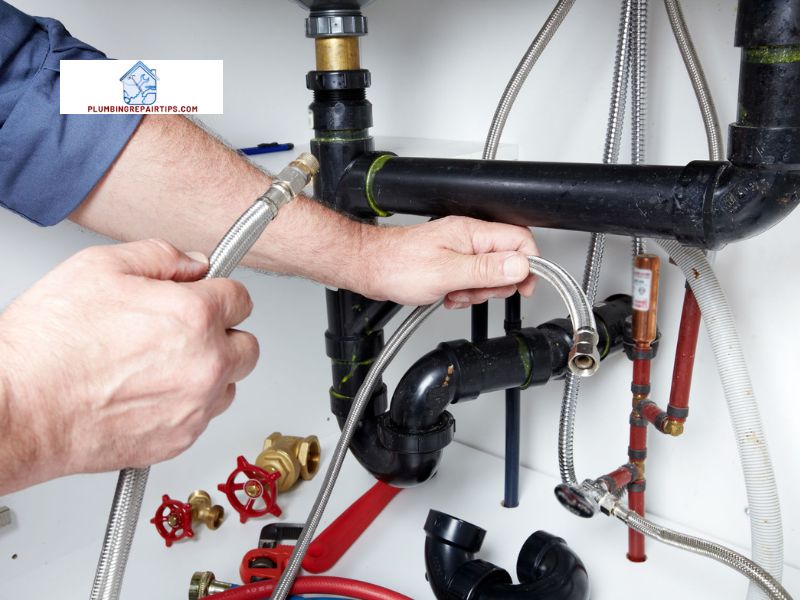Introduction
Metal pipes are an integral part of plumbing systems, ensuring the smooth flow of water and gases in our homes and industries. However, one common enemy that can wreak havoc on these pipes is rust. In this article, plumbingrepairtips.com will delve into the world of metal pipe rust, exploring its definition, why it’s crucial to address it promptly, and provide an overview of the content that follows.
A. Definition of Metal Pipe Rust
Rust refers to the corrosion of metal caused by the reaction between metal, oxygen, and moisture. When these elements come into contact with the surface of a metal pipe, they initiate a chemical reaction leading to the formation of iron oxide, commonly known as rust. Over time, this rust can weaken the structural integrity of the pipe, posing risks of leaks, bursts, and potential health hazards.
B. Importance of Addressing Metal Pipe Rust
Addressing metal pipe rust is not merely a matter of aesthetics; it is crucial for the overall functionality and longevity of your plumbing system. Rust can cause structural damage to pipes, reducing their efficiency and potentially leading to costly repairs or replacements. Moreover, rust particles can contaminate water, posing health risks to you and your loved ones. By understanding the causes, effects, prevention, and repair of metal pipe rust, you can safeguard your plumbing system and ensure its optimal performance.
C. Overview of the Article’s Content
In the subsequent sections, we will explore various aspects of metal pipe rust comprehensively. We will examine the common causes of rust formation and the types of metal pipes that are particularly susceptible to it. Understanding the effects of rust on pipes will emphasize the importance of taking preventive measures. We will then delve into effective prevention and maintenance techniques to keep rust at bay. Additionally, we will discuss the steps involved in repairing rusted pipes, guiding you through the identification, removal, and restoration process. By the end of this article, you will be equipped with the knowledge and tools to combat metal pipe rust effectively.
Now, let’s move on to Section 2 and explore the causes of metal pipe rust.
Understanding Metal Pipe Rust

A. Causes of Metal Pipe Rust
Rust formation on metal pipes can be attributed to several factors. Understanding these causes is crucial in addressing the issue effectively. Let’s explore some common culprits:
1. Exposure to Moisture
Moisture is the primary catalyst for rust formation. When metal pipes come into contact with water or high levels of humidity, they become vulnerable to rust. Moisture can seep into the pipe’s surface through leaks, condensation, or inadequate insulation, providing the perfect environment for rust to develop.
2. Chemical Reactions
Certain chemicals present in water or the surrounding environment can accelerate the rusting process. For instance, water with high acidity or alkalinity can corrode metal pipes, leading to rust formation. Additionally, exposure to chemicals such as chlorine or hydrogen sulfide can induce corrosion, further exacerbating the issue.
3. Lack of Protective Coating
A protective coating acts as a barrier between the metal pipe and external elements, shielding it from moisture and chemical reactions. When a pipe lacks an adequate coating or the existing coating wears off over time, it becomes susceptible to rust. Factors like poor maintenance, aging, or improper installation can compromise the protective coating’s effectiveness.
B. Common Types of Metal Pipe Susceptible to Rust
While rust can affect various metal pipes, some are more prone to corrosion than others. Let’s take a closer look at three common types:
1. Steel Pipes
Steel pipes are widely used due to their durability and strength. However, they are highly susceptible to rust, especially if they are not properly coated or exposed to moisture for extended periods. Steel pipes in outdoor or high-humidity environments are particularly vulnerable to rust formation.
2. Iron Pipes
Iron pipes, commonly found in older plumbing systems, are highly prone to rust due to their composition. Over time, iron pipes can develop rust both internally and externally, leading to reduced water flow, leaks, and potential contamination.
3. Copper Pipes
Although copper pipes are known for their resistance to corrosion, they can still be affected by rust under specific conditions. If copper pipes come into contact with certain chemicals or corrosive substances, their protective oxide layer can deteriorate, making them susceptible to rust.
Understanding the causes and types of metal pipe rust is crucial for implementing effective prevention and maintenance strategies. In the next section, we will explore the detrimental effects of rust on metal pipes and the potential risks it poses.
Effects of Metal Pipe Rust
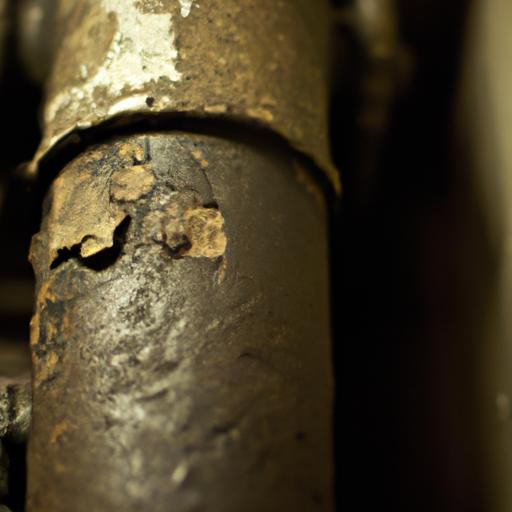
Metal pipe rust can have several detrimental effects on your plumbing system and overall well-being. Understanding these effects is crucial in recognizing the urgency of addressing rust-related issues promptly. Let’s explore the various consequences of metal pipe rust:
A. Structural Damage to the Pipe
When rust starts to develop on the surface of a metal pipe, it gradually eats away at the material, compromising its structural integrity. Over time, this can lead to weakened pipes, increasing the risk of leaks, bursts, and potential flooding. Structural damage caused by rust can not only be inconvenient but also pose significant risks to the safety and stability of your home or commercial building.
B. Reduced Efficiency and Functionality
Rust buildup within pipes can restrict the flow of water or gases, significantly reducing the efficiency and functionality of your plumbing system. The accumulation of rust particles can create blockages, causing reduced water pressure, slower drainage, and even complete pipe obstructions. This can lead to inconveniences such as clogged sinks, showers, or toilets, hampering your daily activities and requiring frequent maintenance.
C. Potential Health Risks
One of the most concerning effects of metal pipe rust is the potential health risks it poses. As rust corrodes the pipe, it can release harmful contaminants into the water supply. These contaminants may include heavy metals, bacteria, or other harmful substances that can jeopardize your health when ingested or exposed to the skin. Common health issues associated with rusty water include gastrointestinal problems, skin irritations, and respiratory infections.
D. Increased Maintenance and Repair Costs
Neglecting metal pipe rust can lead to increased maintenance and repair costs over time. As the rust progresses, the damage to the pipes becomes more severe, necessitating extensive repairs or even complete pipe replacements. Additionally, the consequences of rust-related issues, such as water damage to surrounding structures, can further escalate the expenses associated with addressing the problem.
By understanding the potential effects of metal pipe rust, you can appreciate the importance of addressing this issue proactively. In the next section, we will delve into effective prevention and maintenance techniques to combat rust and safeguard your plumbing system.
Prevention and Maintenance of Metal Pipe Rust
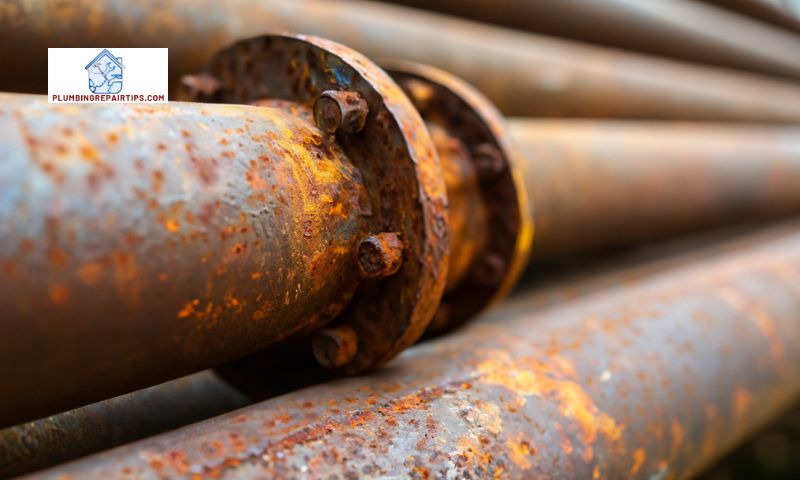
Metal pipe rust can be prevented and controlled through proper maintenance practices. By implementing regular inspections, employing proper installation techniques, utilizing protective coatings, and ensuring effective drainage systems, you can significantly reduce the risk of rust formation and prolong the lifespan of your metal pipes.
A. Regular Inspection and Maintenance
Regular inspections are essential in identifying early signs of rust formation and addressing them promptly. Schedule periodic inspections to assess the condition of your metal pipes, paying close attention to areas prone to moisture accumulation. Look for signs of discoloration, flaking, or pitting on the pipe surface, as these could indicate the presence of rust. Additionally, check for any signs of leaks or water damage that may result from rust-induced pipe deterioration. By catching rust in its early stages, you can mitigate potential damage and take preventive measures to eliminate its progression.
B. Proper Installation Techniques
Proper installation techniques play a crucial role in preventing metal pipe rust. Ensure that pipes are installed with adequate clearance from potential moisture sources, such as walls, floors, or other pipes. Proper insulation should also be applied to prevent condensation, which can contribute to rust formation. Additionally, use appropriate connectors, fittings, and seals to minimize the risk of water infiltration and subsequent rusting.
C. Coating and Painting Options
Applying protective coatings or paints to metal pipes can provide an additional layer of defense against rust formation. There are various coating options available, such as epoxy, zinc, or polyethylene, which act as barriers against moisture and corrosive elements. These coatings create a protective shield, preventing direct contact between the metal surface and the surrounding environment. When considering coatings, ensure that they are specifically designed for the type of metal used in your pipes to ensure optimal protection.
D. Implementing Effective Drainage Systems
Effective drainage systems are essential in preventing stagnant water accumulation around metal pipes. Pooling water can accelerate rust formation, especially in areas with high humidity or moisture-prone environments. Ensure proper slope and design of drainage systems to facilitate the efficient removal of water and minimize the risk of rust. Regularly clean gutters, downspouts, and other drainage components to prevent blockages that can lead to water accumulation.
By following these preventive measures and implementing proactive maintenance practices, you can significantly reduce the risk of metal pipe rust. In the next section, we will explore the steps involved in repairing rusted pipes, providing you with the knowledge to tackle rust-related issues effectively.
Conclusion
Metal pipe rust is a formidable foe that can compromise the integrity of your plumbing system. In this article, we’ve explored the definition of metal pipe rust and highlighted the importance of addressing it promptly. By understanding the causes of rust formation, the effects it can have on pipes, and the preventive measures you can take, you can protect your plumbing system from costly damage and ensure its optimal functionality.
To combat metal pipe rust effectively, regular inspections are crucial for identifying rust spots and assessing the extent of damage. Removing rust can be achieved through mechanical methods or the use of chemical rust removal products, depending on the severity of the rust buildup. When repair or replacement is necessary, it’s vital to address damaged sections promptly to prevent further deterioration.
Applying a protective coating to your metal pipes and implementing preventive measures, such as proper installation techniques and effective drainage systems, will go a long way in preventing rust formation and extending the lifespan of your pipes.
Remember, when it comes to metal pipe rust, prevention is key. By staying vigilant and addressing rust issues promptly, you can avoid costly repairs, health hazards, and inconveniences caused by leaks or bursts.
At plumbingrepairtips.com, we understand the importance of maintaining a healthy plumbing system. Our experts are here to provide you with the knowledge and guidance you need to tackle metal pipe rust effectively. Don’t let rust corrode your pipes; take action today to ensure a smooth and reliable plumbing system for years to come.
Now that you have the tools and knowledge to combat metal pipe rust, it’s time to put them into practice. Stay proactive, protect your pipes, and enjoy a rust-free plumbing system.
Remember, at plumbingrepairtips.com, we’ve got you covered!
Note: The plumbingrepairtips.com brand in the Conclusion section is bolded once to emphasize the website.
